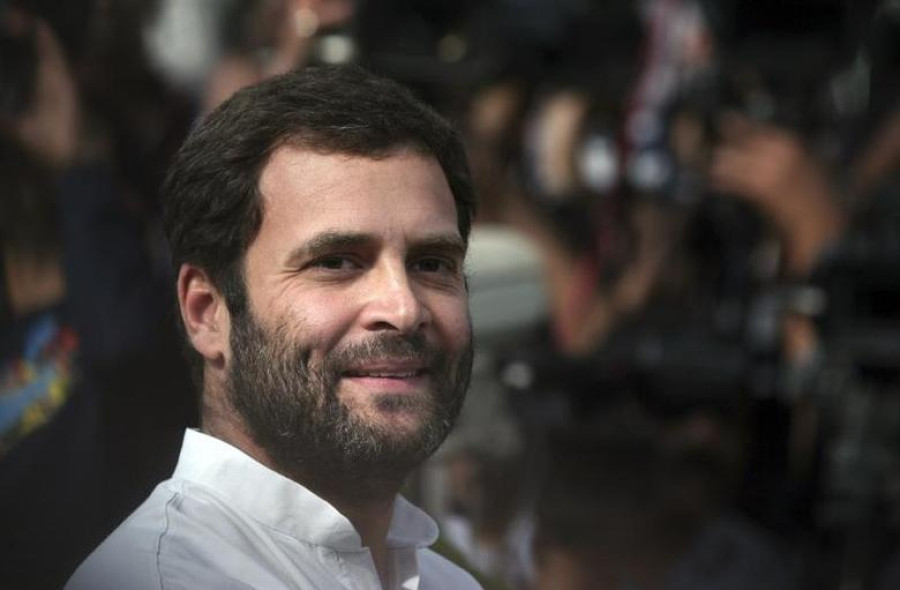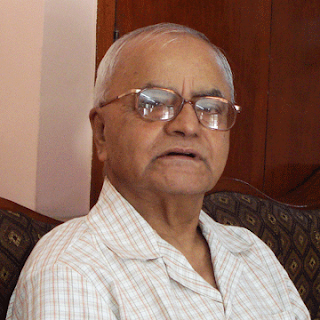Columns
Emergence of a leader
Rahul Gandhi is evolving as a leader despite the humiliation and insinuation hurled at him.
Lok Raj Baral
The emergence of a leader is possible through hard work, confidence, determination, ideas and identification with issues. Leaders are created by movements, long democratic practices and immediate events triggered by people’s frustration and anger. However, instant leaders are short-lived and fade away after they fail to imbibe perseverance, commitment and the qualities of being patient. Such leaders are soon seduced by power and privileges as their role is made for the time being. In Nepal, many ambitious youth have shown the characteristics of instant leaders who are easily exposed and stigmatised.
Watching the Indian political scene for the last few years, it seems that it is the coming of age of Rahul Gandhi. Sooner or later, he will likely play a crucial role in Indian politics. Rahul’s rise is possible not because he happened to be a member of the Nehru-Gandhi family but because of his dedication, perseverance, hard work and the ability to be closer to the people of India. Rather than being elitist, he is perceived as people-centred and egalitarian in his mission and actions, contrary to his aristocratic family background. Rahul is evolving as a leader despite the humiliation and insinuation hurled at him by his opponents.
His mission to unify India, accept unity in the diversity of Indian society and polity, and his steadfast commitment to safeguarding the Republican constitution by finding suitable guardrails have paid him rich dividends in recent elections. Whatever the results, he has surpassed all other country leaders, endearing himself to ordinary people.
Born with a silver spoon, Rahul has unique personality traits. He has the knack of being humble; sometimes, he finds himself in ordinary train compartments, travelling with fellow travellers, shaving his beard in an ordinary salon in Rae Bareli, eating chhole-bhature in Delhi street, mixing with kids while undertaking the Bharat Jodo Yatra, or taking sweets in an ordinary shop somewhere in South India. These activities make him the darling of the masses.
Narendra Damodar Modi, now the Prime Minister, by contrast, also has the humble background of being the son of a tea-seller at the Gujrat railway station and has emerged as a charismatic leader over time. Nevertheless, the taste of power that he enjoyed as a long-time chief minister of Gujrat and later as the country leader for over a decade seems to have transformed him into an elitist leader with a disposition for a luxurious life. However, Modi continues to be popular among his colleagues and has become the only star campaigner for his party during the three parliamentary elections in 2014, 2019 and 2024. Weary and exhausted, Modi’s charisma is declining due to his age and failure to deliver on the people’s basic needs. Moreover, India today is a highly polarised country, as the BJP government is criticised for using religion as a weapon to scare minorities, especially Muslims. The Hindutwa agenda is interpreted as the divisive doctrine propounded and practised by orthodox BJP leaders.
Contrarily, Rahul has taken up this agenda, arguing that he wants to propagate love, not hatred, as he has been repeating since his long march from the deep South to Kashmir and Manipur to Maharastra. He has assured the people that he would not allow the constitution, which embraces the “unity in diversity” principle, to be destroyed. Though it may appear highly populist, his commitment to providing jobs to the unemployed youths, delivering Rs100,000 to women each year, rescuing the peasants from loans, and rejecting the Agniveer Programme that aims to offer four-year jobs in the army and Rs1.2 million to retire the young soldiers seems to be a daunting task for any government. However, his task force brings such agendas to the fore after careful assessment and thinking.
Rahul has revived the moribund Congress Party by single-handedly setting the agendas of rejuvenation and presenting himself as a formidable competitor to Modi, who, to many, is seen as invincible. Many still think Rahul is a weak opponent in the face of the Modi craze, which prevails among elites and commoners alike. Since such a myth has started showing diminishing trends in the wake of the general elections of 2024, electoral predictions may prove wrong, as some election results in the past had nullified. Simmering underground trends cannot be easily fathomed by simple guesswork. It’s better to watch the unfolding developments. Nevertheless, a leader is born.
Rahul has no experience in any governmental office except for his short tenure as party president. Even his father, Rajiv, had suddenly been thrown into politics by his mother, following the death of his brother, Sanjay, in a plane crash. But Rajiv’s track record in government was neither dismal nor superb. However, he was the one who initiated dialogues with China, reaching some sort of understanding of the management of the northern borders. Bilateral relations had improved until quite recently. Modi’s long handshake and warm embrace with the Chinese President, Xi Jinping, didn’t prolong due to the increasing tensions developing along the border, including the loss of army personnel.
Leadership matters much in politics. A leader’s upbringing is as essential as his intelligence, commitment to values and mission. So, the wrong person in office destroys institutions, as is evident in the Nepali context. If a leader is strong and widespread, having all the traits of a democratic culture, he is destined to be successful. As Henry Kissinger writes, “Without leadership, institutions drift, and nations court growing irrelevance and, ultimately, disaster”.
In Nepal, too, young leaders are in the making, and given the opportunity, they would definitely be good at governing the country. Yet, new leaders also need to be good educators, communicators and responsible. Mere procedural leaders have little sense in the dynamic context of politics. Rahul Gandhi has both a good education and a good apprenticeship in democracy, making him sensitive to the needs of the common people.




 8.54°C Kathmandu
8.54°C Kathmandu















